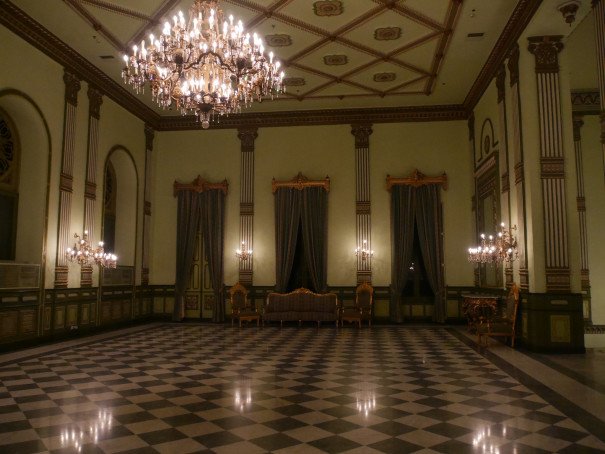
An Uncomfortable Sundowner in a Palace

An Uncomfortable Sundowner in a Palace
Guava Juice on Gezira Island
It is not every day that I get the chance to drink a sundowner in a palace, so when the opportunity presented itself, I seized it with both hands.
Many of Cairo’s hotels bear names that conjure visions of ancient legend and lore. Tourists are lured by the prospect of sleeping in the Cleopatra Palace Hotel, the Ramses Hilton, or the Semiramis Intercontinental. However, Cairo’s offshoot of the global hospitality giant Marriott has no such pretensions. Despite being a former palace, it is known simply as The Marriott.
It was a hot and humid evening on Gezira Island. A refreshing breeze blew in from the Nile. Here, amid the profuse greenery of the Garden Promenade Café, one could almost hear the words of Khedive Ismail: “My country is no longer in Africa; we are now part of Europe.” He had built this palace to accommodate guests who came for the Suez Canal inauguration in 1869 (or to impress the Empress Eugenie, depending on who you ask).
Beset by anxiety over religious sensibilities, I declined alcohol. “Egypt is not a dry country,” said my Cairene friend, condensation forming on the tall glass holding his frothy Sakara Gold beer. Nevertheless, he suggested the guava juice. It was cool, thick, and refreshing. I surveyed the mixed cosmopolitan Zamalek set, a world removed from the “female-free” outdoor establishments in less affluent districts, where men sat on plastic chairs sipping viscous Turkish coffee and smoking shisha while haggling with the butcher next door over the prices of sheep for the upcoming Eid festivities. The divide between the rich and poor was glaring and experiencing both extremes caused me great discomfort.
“The Al Jazeera journalists were arrested here,” said my friend in conspiratorial tones. “Did you know that Amal Clooney was a lawyer in this case?” The evening was yielding more intrigue than I had anticipated. It seemed an inopportune moment to air my strong opinions about press freedom.
A Google search later in the evening would apprise me of the “Marriott Cell” case: Mohamed Fahmy, Peter Greste, and Baher Mohamed were arrested in December 2013 by Egyptian security forces for broadcasting “false news” and belonging to a “terrorist cell” (Fahmy and Greste were indeed arrested at the hotel). In February of this year, Australian Greste was repatriated, although his trial continued in Egypt. And just a few weeks ago, Fahmy and Mohamed were released after receiving a presidential pardon in a gesture of Eid-induced clemency. Greste is free, but yet to be pardoned.
I’m resigned to the fact that there are some things I will never understand about Egypt and its politics; this episode is one of them. Perhaps it is simply enough to know that the journalists who had been arrested at the Gezira Palace, where I sipped my guava juice with the haut monde, were now free.